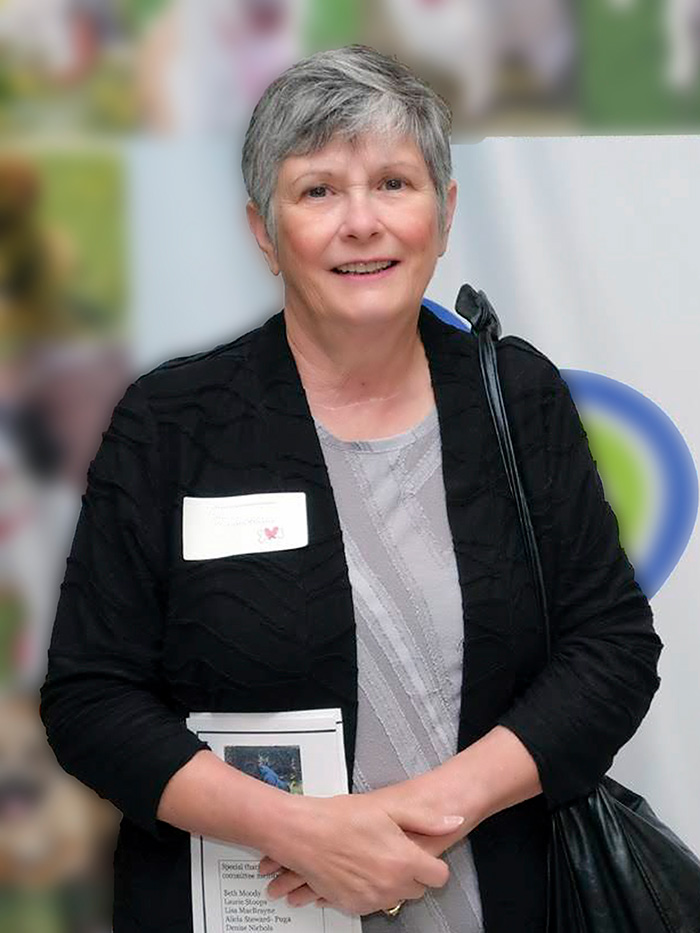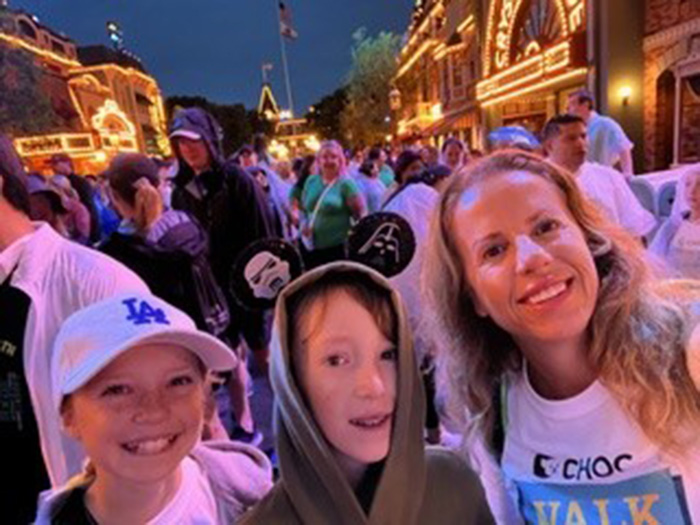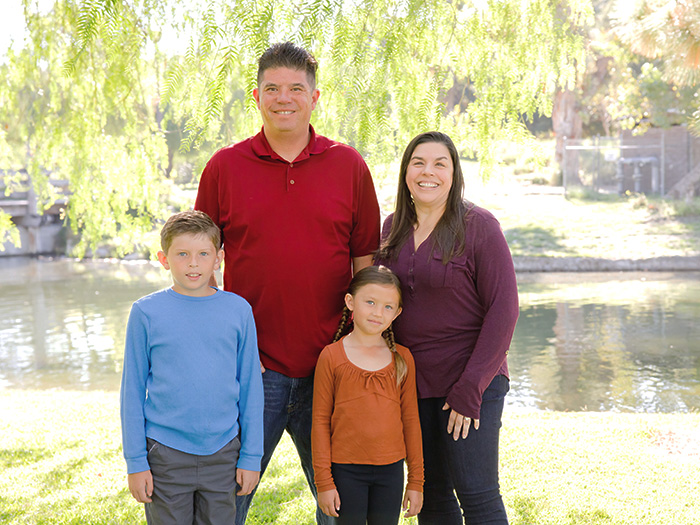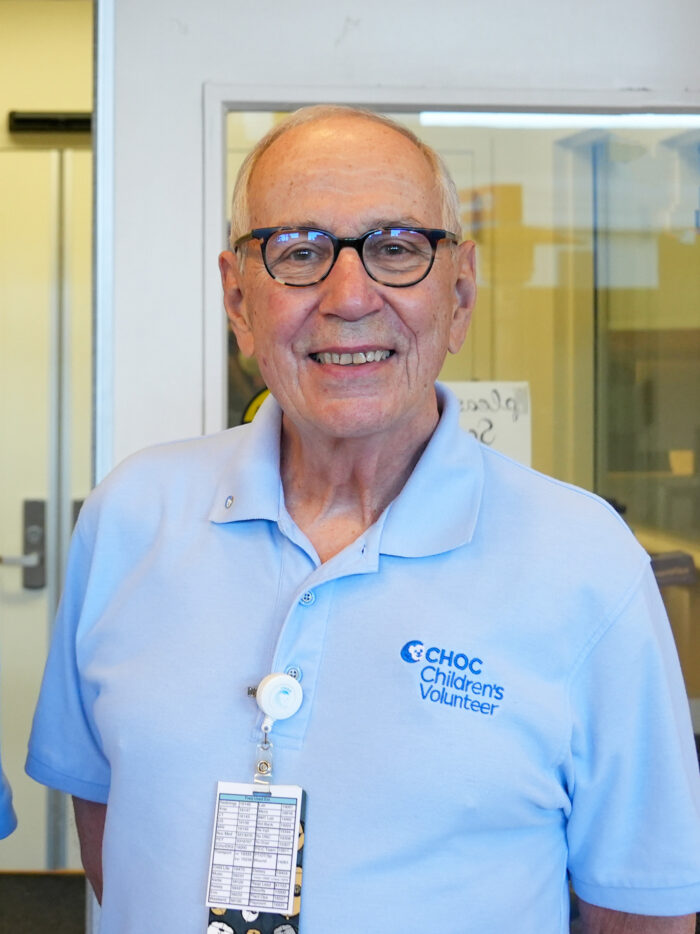A lawyer. A pharmacist. A retired pediatrician.
This is not a set-up for a joke.
Rather, it’s a sampling of the diversity of members who sit on CHOC’s two Institutional Review Boards (IRBs), administrative bodies that are critical to improving and saving the lives of children by providing them access to leading-edge treatments.
Vicki Slone is one such member.
Now going on her sixth year on the Industry Track IRB, which reviews research sponsored by pharmaceutical companies or other for-profit organizations, Vicki used to run CHOC’s bone-marrow transplant lab and helped form the Cord Blood Bank.

With her husband, Ernie – who sits on CHOC’s In House IRB, which reviews device or drug studies initiated by CHOC clinicians or other associates – Vicki spent more than 10 years visiting CHOC and other hospitals and assisted-living homes with therapy dogs.
“Serving on the IRB is an honor and a privilege, and an education in the vital role of research in giving us all hope for a better tomorrow,” says Vicki, who also founded Cancer Survivors Day at CHOC.
Rewarding and stimulating work
The purpose of IRBs, which at CHOC meet once or twice a month, is to protect the rights and welfare of human research subjects recruited to participate in studies.
Members pore over research documents and listen to investigators explain their studies, and pepper them with questions to clarify any issues they have.
It’s very rewarding and intellectually stimulating work, say members of the IRBs, which are bound by the same state and federal regulations, ethical guidelines, and institutional policies.
“Pediatric research has been ignored for a long time,” says Tara Cowell, a hospital attorney who has more than 12 years of experience on CHOC IRBs and has served on eight other hospital IRBs.

“You can’t just provide a smaller dose of something and use the same data as for adults,” Tara says. “We need to find ways to help lessen the impacts of these diseases on children. I enjoy feeling that I’m a part of that.”
Serving on CHOC IRBs is also personal for Tara. Her son, Brayden, 11, had two open heart surgeries and ear procedures at CHOC. Her daughter Aven, 12, also has been a patient.
“Being on the IRB gives me a great feeling,” Tara says, “and I enjoy the partnership with others to feel like we’re doing our best to offer research options to children that will minimize any potential risks from the studies.”
No shortage of studies
At CHOC, there are around 600 active human subjects studies as of fall 2023 – up from around 350 three years ago, says Phuong Dao, executive director of the CHOC Research Institute. A total of 2,100 CHOC patients are enrolled in research projects.
This keeps IRB board members busy – and on top of the innovative research being conducted mostly behind the scenes.
“The IRB keeps me connected to the cutting-edge studies and regulatory requirements essential for our hospital’s success,” says Jenn Hayakawa, DNP, director of Nursing Research and Innovation at CHOC who started here 20 years ago as a bedside nurse in the pediatric intensive care unit (PICU) and has seen the importance of research grow throughout the enterprise.

“Joining the IRB was a pivotal decision in my career,” Jenn says. “It not only broadened my understanding of research but also led me to spearhead my own nurse-led study as a principal investigator. This opportunity was a turning point, allowing me to explore and answer clinical questions that directly impacted patient care.”
Kids are different from adults
For Dr. John P. “Jack” Bruno, a retired pediatrician and hospital executive, the IRB keeps him connected to the work he enjoyed during his career.
“I have been fortunate to have seen and at times to personally benefit from breakthrough research in pediatrics,” says Jack, a longtime volunteer at CHOC. “The work of scientists and research professionals has led to life-saving vaccines, drugs, devices and procedures that will continue to benefit millions of kids and their families.”

Winnie Stockton, supervisor of CHOC’s Investigational Drug Service Pharmacy, has eight years of service on the IRB. A pharmacist who had previously served on the IRB recommended she join the panel.
“My role as a pharmacist in the Investigational Drug Service included management of the investigational drugs for clinical research at CHOC, so I felt I would be able to contribute to the IRB with expertise in medication management and research execution,” Winnie explains.

“I was surprised to learn that less than a century ago, patients did not have some of the protections the IRB strives to provide today,” she adds.
Winnie says that historically, some drugs used to treat pediatric patients did not have pediatric clinical trial data available.
“Pediatric dosing might have been extrapolated from adult dosing based on relative weight or body surface area,” she explains. “However, there are many differences in the drug distribution and metabolism for pediatric patients and adult patients.”
Also, Winnie adds, drug distribution and metabolism can vary among neonates, infants, children, and adolescents.
Thus, research conducted in pediatric patients can help healthcare providers confirm that the pharmacokinetics (how a drug moves into, through and out of the body) and efficacy (the ability of a drug to produce the intended result) match what is expected based on how the drugs work in adults.
“I really value the variety in backgrounds and perspectives of IRB committee members,” Winnie says of her service on the IRB. “I learn from others during the committee discussions and try to incorporate what I learn for review of future IRB submissions.”
Adds Tara: “Something that I would never think of as an issue someone else brings up and we are able to talk through it as a group. And vice versa, where I would find an issue or question about a study that other members weren’t aware of.”
Recruiting for CHOC IRB members
Phuong says efforts are underway to recruit more people to CHOC’s IRB boards.
Prospects undergo training related to research, ethics, and compliance before they become members on the IRBs, and some have voting power to approve studies or have them modified to meet all regulatory requirements.
IRB members focus on ensuring patients are properly informed of studies and the risks to them are minimized.
“The CHOC IRBs are vital in ensuring compliant, ethical research for our pediatric patients, with utmost consideration for their well-being. We’re dedicated to diversity within our IRB membership and actively recruiting new members. It’s crucial that our IRBs represent diverse perspectives and experiences, ensuring decisions regarding proposed research align with the needs and values of the communities we serve.,” Phuong says.
‘Uplifting and exciting’
Vicki, who has a doctorate in microbiology and immunology, says her experience at CHOC has given her a deep appreciation of what families face when standard-of-care treatments have not been enough and the only hope for a child might be a research trial of a new drug or device.
“It’s uplifting and exciting to see the pioneering work to restore health to ailing youngsters and to save more lives,” Vicki says. “Serving on the IRB is a journey well worth taking, and I strongly encourage anyone who might be interested to consider joining because a strength of the IRB is having a diverse group to share ideas, viewpoints and encouragement.”
Jenn says she takes great satisfaction in helping nurses recognize the significance of research in enhancing patient care and encouraging them to actively participate and pursue their own inquiries.
“For me,” she says, “pediatric research isn’t just a professional responsibility; it’s a passion. It’s about uncovering answers to complex clinical questions and translating those findings into better care for our community and beyond. Every study, every piece of data, brings us closer to understanding how to provide the best possible outcomes for children.”
For more information or to be considered for membership on CHOC’s IRBs, click here

Learn about pediatric research and clinical trials at CHOC




